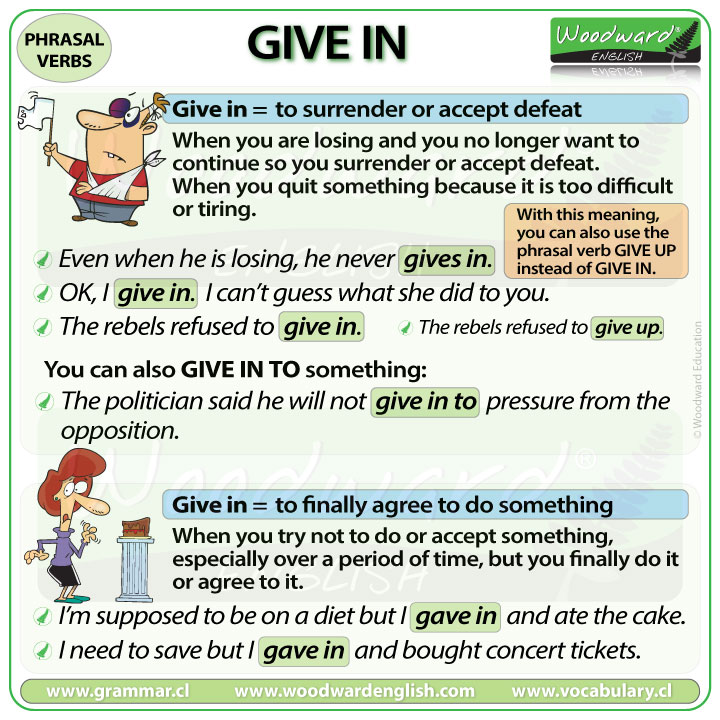GIVE IN – English Phrasal Verb
The English phrasal verb GIVE IN has the following meanings:
1. Give in = to surrender or to accept defeat
(Intransitive) When you are losing and you no longer want to continue so you surrender or accept defeat. When you quit something because it is too difficult or tiring. Synonyms are yield or concede.
- I didn’t understand the math problem; I gave in and looked at the answers.
- Even when he is losing, he never gives in.
- OK. I give in. I can’t guess what she did to you.
- The rebels refused to give in.
The phrasal verb Give up is another way of saying Give in in this context.
- The rebels refused to give up.
NOTE: When are referring to giving in or surrendering to something or someone, this phrasal verb becomes transitive which means you need the object after it.
Give it to (something) = to surrender to something
In this case the phrasal verb is transitive, which means in needs an object after it.
- My students know that if they whine enough, I will give in to their request for a movie on Friday.
- The politician said he will not give in to pressure from the opposition.
2. Give in = to finally agree to do something
(intransitive) When you try not to do or accept something, especially over a period of time, but you finally do it or agree to it. Synonyms are to cave in, accede, or comply.
- I’m supposed to be on a diet but I gave in and ate an entire chocolate cake.
- I need to save my money, but I gave in and bought some concert tickets.
- The salesperson was pressuring me to buy the red car that I wanted. I thought it was a bit too expensive, but I eventually gave in. (This means I eventually bought it)
Give in – English Summary Chart

